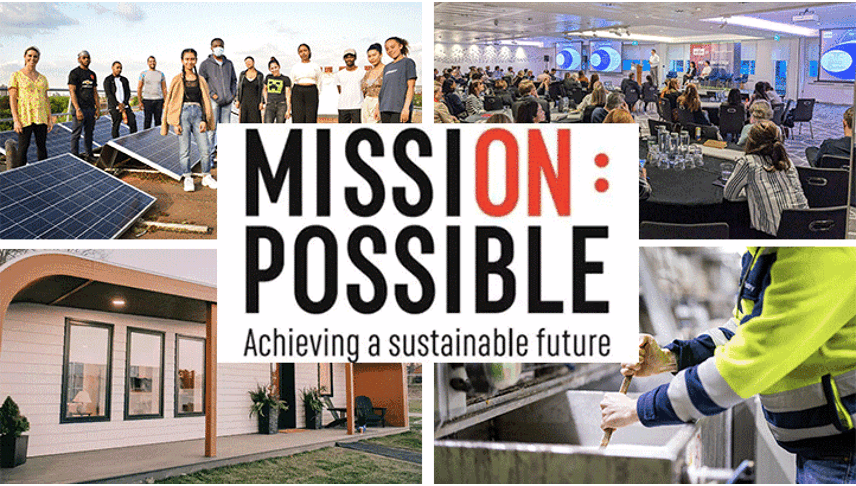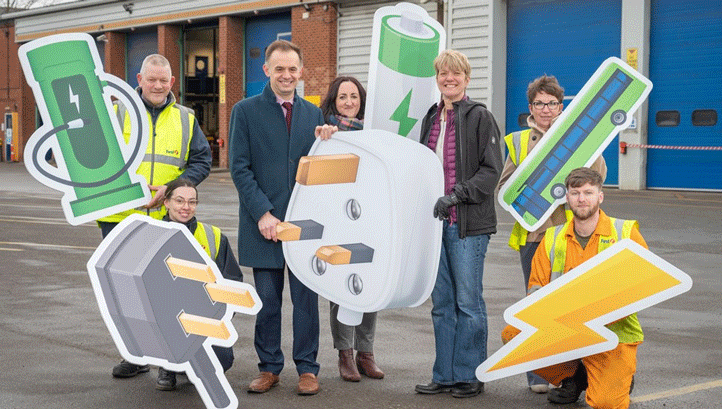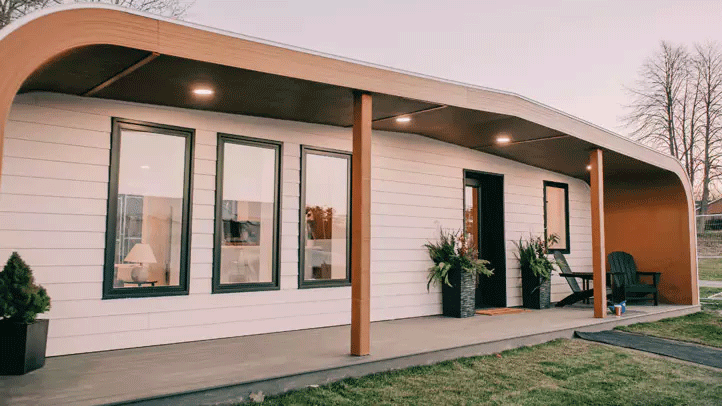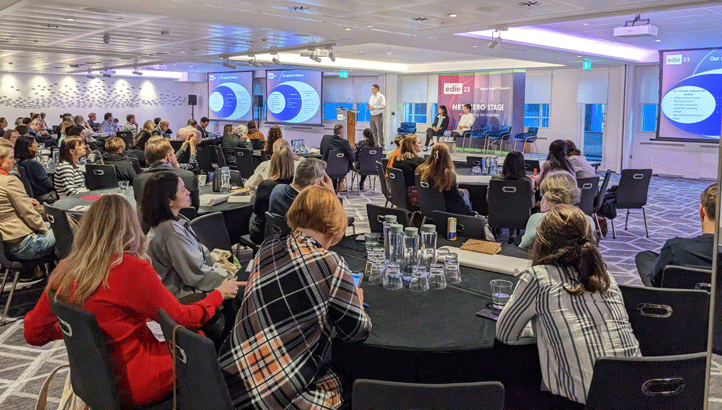Register for free and continue reading
Join our growing army of changemakers and get unlimited access to our premium content

Published every week, this series charts how businesses and sustainability professionals are working to achieve their ‘Mission Possible’ across the campaign’s five key pillars – energy, resources, infrastructure, mobility and business leadership.
Across the UK and the world, leading businesses, cities, states and regions are turning environmental ambitions into action. Here, we round up five positive sustainability stories from this week.
ENERGY: Pukka Herbs partners with London-based community solar scheme

Image: Energy Garden
Last month, we featured news of OVO Energy’s partnership with Community Energy England in this feature, highlighting the growing role businesses are playing in advocating for the community energy movement.
This time around, we are shining the spotlight on a new partnership between organic herbal tea brand Pukka Herbs and Energy Garden. The business has signed a two-year agreement to purchase the electricity needed for its headquarters and warehouse directly from Energy Garden’s community solar projects in London. Energy Garden notably also supplies electricity to Patagonia.
Pukka Herbs will pay for the electricity, plus a social premium, with Energy Garden set to use the proceeds to fund the creation of gardens on railway stations plus the running of its education programmes. A new education module on energy and environment, for young people aged seven to 16.
“We are immensely excited to be the second UK business initiating our partnership with Energy Garden,” said Pukka Herbs’ mission lead Georgia Phillips. “We were so impressed and inspired by Energy Garden’s unique model for selling excess energy to business. By paying the social premium, Pukka is delighted to be able to fund wider social and environmental projects linked to our Mission to connect more people to nature and address the climate and biodiversity crises. We also hope that Pukka’s switch will inspire change amongst other businesses too.”
RESOURCES: Ikea plans bio-based glue rollout to cut carbon emissions
Ikea has announced several sustainability success stories in recent weeks, including a new partnership with Canopy to improve forest stewardship in the viscose supply and chain and fresh measures to support direct suppliers in procuring clean energy.
Additionally, the retailer has committed to shift away from fossil-based glues to bio-based glues. Given that glues in board materials account for 5% of Ikea’s absolute greenhouse gas emissions across its whole value chain, the climate impact of the change will be significant.
Inter Ikea Group’s head of climate Andreas Rangel Ahrens has revealed that the business has been exploring alternatives to fossil-based glues for around ten years, seeking to find alternatives that were as durable and which also did not result in a steep increase in costs. The business now believes it is able to cut its fossil-based glue use by 40% by the 2030 financial year and has launched an innovation accelerator in a bid to reach 100% in the longer-term.
Ikea of Sweden’s material and technology engineer Venla Hemmila said: “This confirms the need for more glues with much lower climate footprints and that small changes can have big impacts. We hope this will inspire others to follow.”
MOBILITY: First Bus to launch two fully electric depots within a year
First Bus has pledged to operate a zero-emission fleet within the UK by 2035.
In a significant step towards this goal, the business has this week announced that it will be ready to operate fully-electric fleets from its bus depots in York and Norwich by the end of March 2024, thanks to the confirmation of additional funding from the UK Government.
First Bus and its local authority partners, plus the Department for Transport (DfT), will co-fund the purchase of an additional 117 electric buses across the York and Bramley Depots, its Norwich depot and the Hoeford Depot. This will enable the entire fleets at these locations to be electrified, in what First Bus believes is a first for England outside of London.
First Bus is also working with local electricity distribution networks to deliver the necessary grid upgrades and charging points for its expanded e-bus fleets.
THE BUILT ENVIRONMENT: UK’s first 3D-printed home insurance policy launches
Image: The University of Maine – Advanced Structures and Composite Center (ASCC)
edie and our innovation partner Springwise have covered the emergence of 3D-printed homes in our monthly features on green innovations regularly in recent times. 3D-printed buildings present opportunities to use recycled and natural materials and to streamline construction supply chains, thereby cutting emissions.
In addition to the multiple projects underway to design, test and deliver innovative 3D-printed homes, moves will need to be taken to address other practical barriers to rolling them out. This week, insurance broker Adrian Flux has launched what it claims is the first commercially available home insurance for 3D-printed buildings in the UK – something that already exists in the US and some EU member-states.
The insurance covered whole homes that are 3D-printed, plus those with 3D-printed elements. This will make it easier for homeowners to mortgage 3D-printed homes, thus accelerating their uptake.
“We’re passionate about producing pioneering policies that have a positive impact,” said Adrian Flux’s general manager Gerry Bucke. “This will help the UK’s 3D-printed homes movement gather pace as it looks to follow the lead of the US and other countries like the Netherlands. It will take time to catch up, but we’re proud to be helping put some crucial and supportive steps in place.”
BUSINESS LEADERSHIP: edie welcomes hundreds of sustainability leaders to its biggest event of 2023
This Wednesday and Thursday (1-2 March), edie welcomed more than 500 sustainability and energy leaders to its biggest face-to-face event of the year – edie 23.
Over the course of the two days in central London, we heard from keynote speakers including Nigel Topping, Paul Polman, Elizabeth Wathuti and Mikaela Loach, as well as green policy experts such as Chris Skidmore MP and former energy and climate change secretary Chris Huhne. There were also a number of business leaders in attendance, including Pukka Herbs’ chief executive Anuradha Chugh, Leon Restaurants’ co-founder Henry Dimbleby and Holcim’s chief financial officer Geraldine Picaud.
In addition to speeches and panels, we hosted workshops, networking sessions a health and wellbeing zone with MyMynd and a drop-in net-zero clinic in partnership with the UK Government, to name but a few features.
Reflecting on the event, Heathrow Airport’s director of sustainability Matthew Gorman said: “It’s easy to get buried in the day-to-day of your own job, so it was lovely to have a chance to step outside this to learn, reflect, and reconnect with friends and colleagues in the sustainability movement – and above all, to get inspired and re-energised.”






The zero emission fleet is one half of the equation. The other half lies with zero emission generation.
Nuclear generation perhaps? It ticks all the boxes!
Richard Phillips